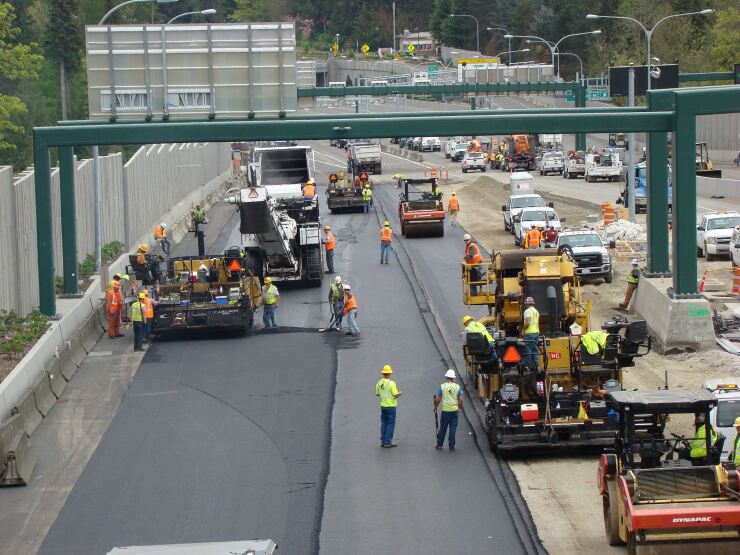DALLAS -- Motorists can expect to pay more road tolls as states and regional transportation authorities deal with potential long-term declines in federal transportation funding, Standard & Poor’s analysts said in a report that also recommends a long-term revenue fix for the ailing Highway Trust Fund.

“We would view a long-term HTF funding solution that includes a dedicated, user-based revenue stream that can support the growing transportation infrastructure investment requirements as a credit positive,” said S&P credit analyst Kurt Forsgren in the report released Aug. 3.
Funding for transportation capital and operating budgets has not kept pace with the demand for better highways and transit systems despite gasoline tax increases in 22 states since 2013, the report found.
“Absent a new funding source, we expect state and regional transportation authorities will struggle to fill potential long-term declines in federal transportation funding, and will look toward expanded tolling,” he said.
A number of states, including Wisconsin, Indiana, and Oregon, are considering asking the Transportation Department for permission to generate additional revenues by tolling existing lanes of their interstate highways, which is currently prohibited by federal law.
More states are likely to pursue strategies similar to the Rhode Island’s plan to implement tolling on a portion of its state and interstate roadways, according to the S&P report.
“Facilitated by continued improvement of electronic toll collection technology and the proliferation of compatible transponders by a growing number of tolling agencies with reciprocal collection and revenue-sharing agreements, we expect more states will explore this option,” Forsgren said. “The squeezing of transportation funding at the state and local level will make U.S. federal transportation grant programs, which have so far been effective, even more important.”
President Trump’s proposed budget would freeze federal transportation funding through fiscal 2027 at the level authorized for fiscal 2018 instead of the annual increased provided through fiscal 2020 by the Fixing America’s Surface Transportation (FAST) Act, Forsgren said.
Congressional action is not likely until next year on a 10-year, $1 trillion infrastructure renewal proposal that the Trump administration has said would be presented to Congress in September, according to the S&P report.
“The administration is developing legislative proposals to expand infrastructure investment [that] are now most likely to be delayed until 2018,” Forsgren said.
“While it might include proposals for long-term funding to augment the federal gas tax, we anticipate it will detail how to leverage up to $200 billion in direct spending the president proposes by encouraging even greater local and state participation and private investment,” he said.
The expectation for a delay on the infrastructure renewal plan coincides with a recent assessment by Sen. John Thune, R-S.D., chairman of the Senate Commerce, Science, and Transportation Committee.
Thune told reporters on Thursday that the White House is now focusing on legislation involving immigration and tax reform before tackling infrastructure.
“Clearly, the administration is putting a big priority on things like immigration,” Thune said. “Infrastructure more than likely, in my view, spills into next year based on how long it’s going to take to do tax reform.”
Congress has supported the HTF with $140 billion of general revenues since 2008 as outlays outpaced fuel tax revenues, Forsgren said.
The best way to avoid future general revenue transfers into the HTF would be to raise the federal taxes on gasoline and diesel now and index them to inflation, said Chris Spear, chief executive of the American Trucking Associations.
“That is why ATA has testified before Congress at least 19 times since 2006 in support of increasing the federal fuel tax, but Congress has so far refused,” Spear said. “For the immediate future, the fuel tax is the most efficient and fair way to fund highways.”





